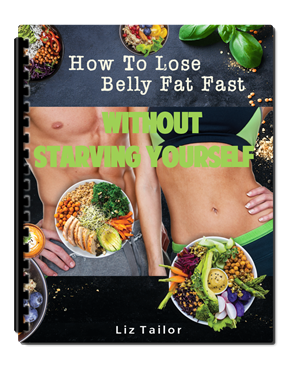Building muscle while following a plant-based lifestyle is not only possible—it’s incredibly rewarding.
For many people, gaining muscle on a vegan diet seems like a challenge, mostly because the fitness world often centers on animal protein.
But let’s be clear: plants provide everything your body needs to repair, grow, and thrive.
With the right knowledge, smart planning, and consistent effort, you can sculpt the physique you want without compromising your values.
Want to get stronger, recover faster, and build lean muscle on a vegan diet?
These ten tips include simple advice, real examples, and resources you can put to work today.
1)) Prioritize Protein From Plant-Based Sources
If there’s one nutrient that dominates conversations about muscle growth, it’s protein.
While animal-based eaters may lean on chicken breasts or whey shakes, we have a wide range of vegan-friendly protein sources that can support muscle growth just as effectively.
The secret lies in variety and balance.
Plant-Based Protein Power List
Here’s a quick guide to some of the best vegan protein sources you should regularly include:
- Legumes: Lentils, chickpeas, black beans, kidney beans
- Soy Products: Tofu, tempeh, edamame
- Seitan: High in protein and versatile for recipes
- Whole Grains: Quinoa, oats, buckwheat
- Nuts & Seeds: Pumpkin seeds, hemp seeds, chia, almonds
- Vegan Protein Powders: Pea protein, rice protein, hemp protein blends
Protein Hacks for Every Meal
- Add lentils or chickpeas to salads for a muscle-friendly lunch.
- Swap white rice for quinoa to boost your protein intake.
- Use tofu scrambles as a high-protein breakfast option.
- Keep a jar of peanut butter or almond butter handy for quick calorie and protein boosts.
By aiming for at least 1.6–2.2 grams of protein per kilogram of lean muscle mass daily, you’ll provide your muscles with what they need to repair and grow after training.
2)) Focus on Total Calorie Intake
Protein is important, but calories are the real building blocks of muscle. Many new vegans struggle with under-eating because plant foods are often less calorie-dense than animal products.
If your goal is gaining muscle on a vegan diet, you’ll need to make sure you’re in a calorie surplus—eating more than you burn.
Calorie-Dense Vegan Foods To Keep You Growing
- Avocados: Healthy fats plus fiber
- Nuts & Nut Butters: Easy to add to smoothies, oatmeal, or toast
- Dried Fruit: High in calories and great for snacking
- Tahini & Hummus: Perfect spreads and dips
- Oils: Olive oil, flaxseed oil, and coconut oil added to meals
Checklist for Meeting Your Calorie Goals
- Track your meals using a food app (at least for a few weeks).
- Add an extra snack between meals—like trail mix or a smoothie.
- Increase portion sizes gradually rather than all at once.
- Use liquid calories (smoothies, shakes) if you struggle with volume.
The bottom line? Don’t let low-calorie density sabotage your progress. Muscles need fuel, and fuel means calories.
3)) Balance Your Macronutrients
Protein grabs attention, but carbs and fats also play key roles in building muscle.
Carbs are your body’s preferred energy source, and healthy fats support hormone production—both critical for growth.
Vegan Muscle Macro Blueprint
- Protein: 20–30% of total calories
- Carbohydrates: 45–55% (fuel for training and recovery)
- Fats: 20–30% (supports hormones and absorption of vitamins)
Macro Planning Ideas
- Pre-workout: Focus on carbs (oats, fruit, rice cakes) plus a little protein.
- Post-workout: Combine carbs and protein (tofu stir-fry with rice, smoothie with banana and protein powder).
- Daily meals: Build plates with all three macronutrients—protein, carbs, and fats.
A balanced approach ensures you’re not just eating enough, but eating smart.
4)) Optimize Your Training Program
Nutrition alone won’t build muscle—you need to challenge your muscles through resistance training.
Without progressive overload (gradually increasing the stress placed on muscles), growth simply won’t happen.
Best Practices for Vegan Muscle Training
- Lift Heavy Enough: Choose weights that challenge you for 6–12 reps.
- Progressive Overload: Increase weight, reps, or sets over time.
- Train Compound Movements: Squats, deadlifts, presses, rows.
- Train Consistently: Aim for 3–5 strength sessions per week.
Workout Template for Growth
- Day 1: Push (chest, shoulders, triceps)
- Day 2: Pull (back, biceps)
- Day 3: Legs (quads, hamstrings, glutes)
- Day 4: Rest or Active Recovery
- Repeat
Pairing smart training with solid nutrition is the winning formula for muscle gain.
5)) Don’t Fear Carbs
One of the biggest myths floating around is that carbs are the enemy.
The truth?
Carbs are your best ally in the gym. They provide glycogen, the fuel your muscles rely on during intense workouts.
Without enough carbs, your performance—and muscle growth—will suffer.
Carb-Rich Vegan Foods for Training Fuel
- Rice, oats, and quinoa
- Potatoes and sweet potatoes
- Fruits like bananas, berries, and mangoes
- Whole-grain bread and pasta
- Beans and lentils (double as protein + carbs)
Carb Timing Hacks
- Before training: Quick-digesting carbs like fruit or rice cakes.
- After training: Carbs paired with protein for glycogen replenishment.
- Throughout the day: Steady intake to maintain energy and recovery.
When your body has the energy it needs, you’ll lift heavier, recover faster, and see better gains.
6)) Supplement Smartly
Even with the best diet, some nutrients are harder to get from plants alone.
Supplements can help fill the gaps and support performance.
Essential Vegan Supplements for Muscle Growth
- Creatine Monohydrate: Enhances strength and recovery.
- Vegan Protein Powder: A Convenient way to hit protein goals.
- Vitamin B12: Critical for energy and metabolism.
- Vitamin D: Supports bone health and hormones.
- Omega-3s (ALA, DHA, EPA): From algae oil for brain and joint health.
- Iron & Zinc (if needed): Check blood levels before supplementing.
Supplement Ideas:
- Mix creatine into your morning smoothie.
- Keep a tub of vegan protein at work for quick shakes.
- Choose an all-in-one multivitamin designed for vegans.
Supplements aren’t a shortcut, but they ensure your body has all the tools it needs to thrive.
7)) Prioritize Recovery and Sleep
Muscle growth doesn’t happen in the gym—it happens when you rest. Training breaks down muscle fibers, but recovery rebuilds them stronger.
Sleep is also non-negotiable when it comes to gaining muscle on a vegan diet (or any diet).
Recovery Practices That Accelerate Growth
- Sleep 7–9 hours per night.
- Rest days matter— don’t overtrain.
- Stretch and foam roll to aid recovery.
- Stay hydrated to support performance and reduce fatigue.
Evening Routine Checklist
- Avoid screens 30–60 minutes before bed.
- Create a cool, dark, and quiet sleep environment.
- Practice relaxation habits like journaling or deep breathing.
Muscles grow while you sleep—don’t rob yourself of that progress.
8)) Track Your Progress
You can’t improve what you don’t measure. Tracking your workouts, meals, and results helps identify what’s working and where you need adjustments.
Tracking Tools & Worksheets
- Workout Log: Record exercises, sets, reps, and weights.
- Nutrition Tracker: Use apps like Cronometer or MyFitnessPal.
- Progress Photos: Take monthly photos for visual comparison.
- Body Measurements: Track waist, chest, arms, and thighs.
Pro Tip:
Don’t rely solely on the scale. Muscle gain can mask fat loss, so progress pictures and strength records tell a more accurate story.
9)) Stay Consistent and Patient
Building muscle on a vegan diet won’t happen overnight. It requires months (sometimes years) of steady effort.
The good news?
Every rep, every meal, and every rest day adds up.
Mindset Hacks for Long-Term Success
- Set small, achievable goals (like adding 5 pounds to your squat).
- Focus on habits, not perfection.
- Surround yourself with supportive communities—online vegan fitness groups are a great start.
- Celebrate progress, no matter how small.
Consistency beats intensity. It’s better to train moderately for years than to go all-in for a month and burn out.
10)) Enjoy the Process
At the end of the day, building muscle as a vegan isn’t just about physique—it’s about lifestyle.
You’re choosing a way of eating that aligns with compassion, sustainability, and health. Why not enjoy the journey?
Lifestyle Integration Ideas
- Experiment with new vegan recipes that pack protein.
- Train with a partner to make workouts fun.
- Reward yourself for milestones (new shoes, not cheat meals).
- Keep learning—nutrition and fitness are ever-evolving.
The more you enjoy the process, the easier it will be to stay consistent and motivated.
Conclusion
Gaining muscle on a vegan diet is 100% possible when you combine smart nutrition, structured training, and disciplined recovery.
Focus on protein variety, ensure a calorie surplus, balance your macros, train hard, rest well, and use supplements wisely.
But perhaps most importantly, stay patient and enjoy the process.
Your vegan lifestyle already represents strength—now it’s time to show it in your body as well.
Download Our Free E-book!







